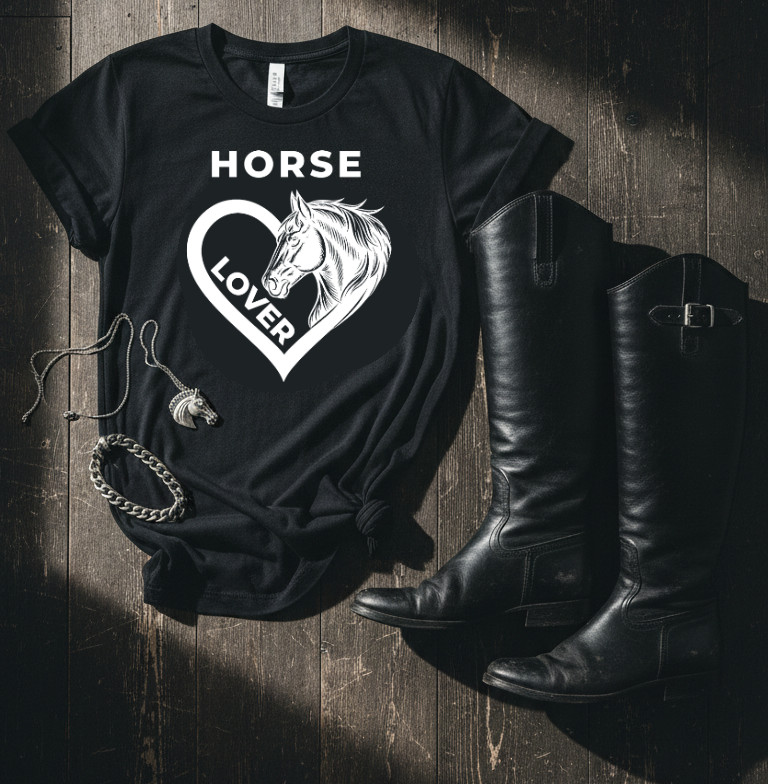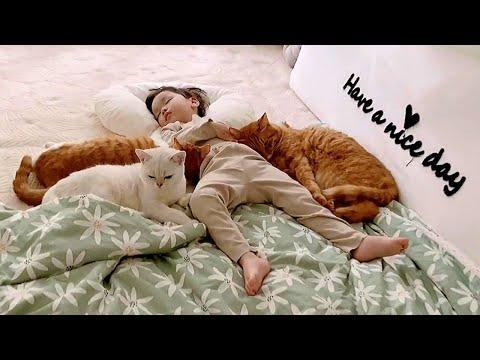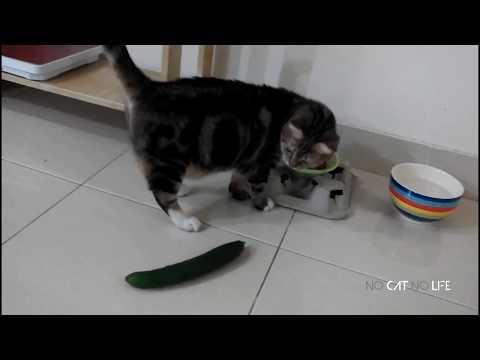In this video, we’ll discuss the top 18 human behaviors that cats hate and wish you wouldn’t do
Forced socialization
Unless it's a housemate or friend, cats are generally not fond of other felines. This is because of their animal instincts and territorial nature.
Not Having a Safe Hiding Spot
In the wild, cats often look for a hiding spot to protect themselves from other predators or stalk their prey.
Cats are usually hyper-alert, even while dozing, so an enclosed hiding spot may allow them to feel secure and relaxed.
Declawing them
This one is a must to avoid. Declawing is torturous to cats. It would be akin to cutting off our fingers at the last knuckle, leading to pain and mobility issues. It can even breed a sense of feeling vulnerable or defenseless. Cats who go through such insecure emotions can develop aggressive behaviors to make up for their constant state of vulnerability.
Feeding them milk
Although feeding cow’s milk to cats is thoughtful as a pet lover, it hurts them more than it helps. This is because cats are lactose intolerant.
Cats are attracted to milk because of the protein and fats that they can sense and smell in it.
Roughhousing
Children are unpredictable and impulsive. They often behave in ways that are frightening or distressing to cats. Kids are grabby; they make loud noises and sudden moves. Cats prefer more predictable and serene companions
An enclosed litter box
A covered litter box may look cleaner than an open one to you, but cats prefer to have large litter boxes that offer air flow. Closed boxes prevent proper airflow, which discourages use.
Strong smells
A cat’s sense of smell is 14 times stronger than that of humans. Now think how much nauseated your cat can get when sprayed with a scented product, or brought close to a particularly strong-smelling substance.
As such you may want to protect your pet from your perfume, deodorants, household cleaning products, bleach, disinfectants, citrus fruits, onions, garlic, pepper and any strong-smelling chemicals as much as possible. Likewise, cats hate a dirty, smelly litter box, so make sure to scoop and replace litter in a timely fashion.
Dog Visitors
dogs have an instinct to chase small preys — especially if they’re fleeing. It's no secret that cats typically don't enjoy being chased.
Whisker Fatigue
Whisker stress occurs when a cat’s whiskers rub against the sides of the food bowl. A cat's whiskers are so sensitive that they can become easily fatigued by unnecessary contact.
Less than Fresh Food
When it comes to dinner time, your cat wants nothing less than fresh food.
If you let your cat’s food sit out in the dish for some time, your kitty may turn their nose up at it, viewing it as past its prime.
Cradling them like a baby
When you pick up a cat and cradle them like a baby, they may feel vulnerable and want to find a place to get back to where they feel they are in control of their surroundings.
If you cradle a cat when it doesn’t want to be held, you can injure them by squeezing them too hard or dropping them when they try to scramble away.
Vet clinics
Sounds and intense smells of vet clinics make them a sure bet when it comes to stressing out felines.Cats are very attached to their home territory, and they prefer to live with a very predictable routine that doesn’t involve interacting with strangers or travelling away from their home environment.
Rough petting
There’s something else that cats don’t like. It’s being petted too hard. Cats are so cute and cuddly that you want to handle them and give them a strong pat-down.
Belly Rubs
A cat’s stomach is a very sensitive part of their body and they hate it when you pet their belly as this region protects the most vital organs.
Being Teased
Teasing cats with items like laser pointers, tugging on their tail, sliding them across a wooden floor, and dressing them up in doll’s clothing are things that cats hate.
Arguing in Front of Them
Cats are very sensitive to loud noises, and yelling can get them really scared. A hostile environment is not good for you and is certainly not good for your pet.
High-pitched Sounds
While cats hear low-pitched noises about as well as we do, they can pick up high-pitched sounds much better than humans.
High-pitched noises to cats can come in ways you would not expect. Ambulance sirens, loud music, hair dryers, vacuum cleaners, or even your phone’s ringtone are some of the high-pitched sounds that cats hate.
Low Temperatures
Cats like temperatures of 20 degrees higher than human’s ideal temperature. In fact, a cat’s coat isn’t made to protect them from low temperatures. On the contrary, their coat protects their delicate skin from extreme heat.
Blowing in their face
Do you like a rush of air in your face? Why do it to your cat? People seem amused or surprised when cats snap at them when they blow in their faces. That's a great way to make your cat hate you.
- Category
- Pets And Animals
























